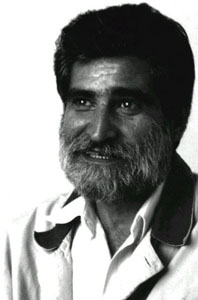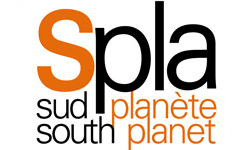Artistes
Artur PESTANA DOS SANTOS (PEPETELA)
 © DR
© DRRenseignements :
Pays d'origine : AngolaArtur Carlos Maurício Pestana dos Santos, plus connu sous son nom de plume Pepetela, est un écrivain né en Angola (Benguela) en 1941.
Il fait des études au Portugal puis s'exile à Paris et à Alger. A partir de 1960, il s'engage dans la guerre d'indépendance avec le Mouvement populaire pour la libération de l'Angola. En 1975, il est nommé vice-ministre de l'Éducation.
Professeur de sociologie, Pepetela est aussi un écrivain hors pair : il a écrit une dizaine de livres publiés dans plusieurs pays d'Europe.
Le pouvoir et la littérature sont très liés en Angola. Pepetela, à travers sa littérature, cherche à fédérer les peuples d'Angola avec la notion de peuple angolais, puisque ce dernier est constitué de différentes ethnies. Il décortique la société angolaise avec humour et truculence.
Prix :
1997 - Prix Camões
Bibliographie :
Romans
1972 - As Aventuras de Ngunga
1978 - Muana Puó
1980 - Mayombe
1985 - O Cão e os Caluandas
1985 - Yaka
1990 - Luandando
1990 - Lueji, o Nascimento de um Império
1992 - Geração da Utopia
1995 - O Desejo de Kianda
1997 - Parábola do Cágado Velho
1997 - A Gloriosa Família
2000 - A Montanha da Água Lilás
2001 - Jaime Bunda, Agente Secreto
2003 - Jaime Bunda e a Morte do Americano
2005 - Predadores
2007 - O Terrorista de Berkeley, Califórnia
2008 - O Quase Fim do Mundo
2008 - Contos de Morte
2009 - O Planalto e a Estepe
2011 - A Sul. O Sombreiro
2013 - O Tímido e as Mulheres
Pièces
1978 - A Corda
1980 - A Revolta da Casa dos Ídolos
Artur Carlos Maurício Pestana dos Santos (born 1941) is a major Angolan writer of fiction. He writes under the name Pepetela.
A white Angolan, Pepetela was born in Benguela, Portuguese Angola, and fought as a member of the MPLA in the long guerrilla war for Angola's independence. Much of his writing deals with Angola's political history in the 20th century. Mayombe, for example, is a novel that portrays the lives of a group of MPLA guerrillas who are involved in the anti-colonial struggle in Cabinda, Yaka follows the lives of members of a white settler family in the coastal town of Benguela, and A Geração da Utopia reveals the disillusionment of young Angolans during the post-independence period. Pepetela has also written about Angola's earlier history in A Gloriosa Família and Lueji, and has expanded into satire with his series of Jaime Bunda novels. His most recent works include Predadores, a scathing critique of Angola's ruling classes, O Quase Fim do Mundo, a post-apocalyptic allegory, and O Planalto e a Estepe, a look at Angola's history and connections with other former communist nations. Pepetela won the Camões Prize, the world's highest honour for Lusophone literature, in 1997. Pepetela is a Kimbundu word that means "eyelash," translation of his surname, "pestana" in Portuguese. The author received this nom de guerre during his time as an MPLA combatant.
(From Wikipedia, the free encyclopedia.
Read more: https://en.wikipedia.org/wiki/Pepetela)
Prizes:
1997 - Camões prize
Bibliography:
Novels
1972 - As Aventuras de Ngunga
1978 - Muana Puó
1980 - Mayombe
1985 - O Cão e os Caluandas
1985 - Yaka
1990 - Luandando
1990 - Lueji, o Nascimento de um Império
1992 - Geração da Utopia
1995 - O Desejo de Kianda
1997 - Parábola do Cágado Velho
1997 - A Gloriosa Família
2000 - A Montanha da Água Lilás
2001 - Jaime Bunda, Agente Secreto
2003 - Jaime Bunda e a Morte do Americano
2005 - Predadores
2007 - O Terrorista de Berkeley, Califórnia
2008 - O Quase Fim do Mundo
2008 - Contos de Morte
2009 - O Planalto e a Estepe
2011 - A Sul. O Sombreiro
2013 - O Tímido e as Mulheres
Plays
1978 - A Corda
1980 - A Revolta da Casa dos Ídolos















